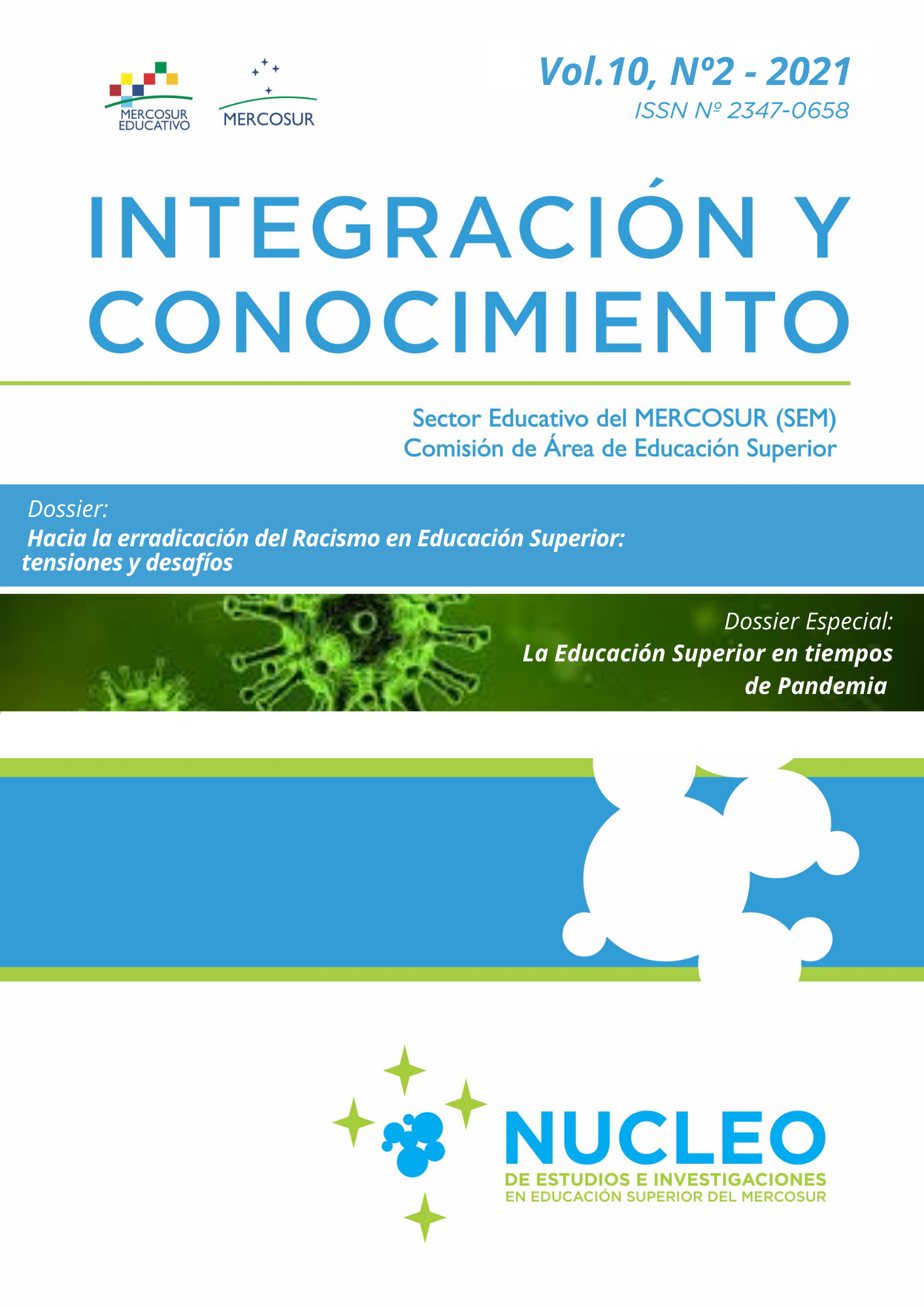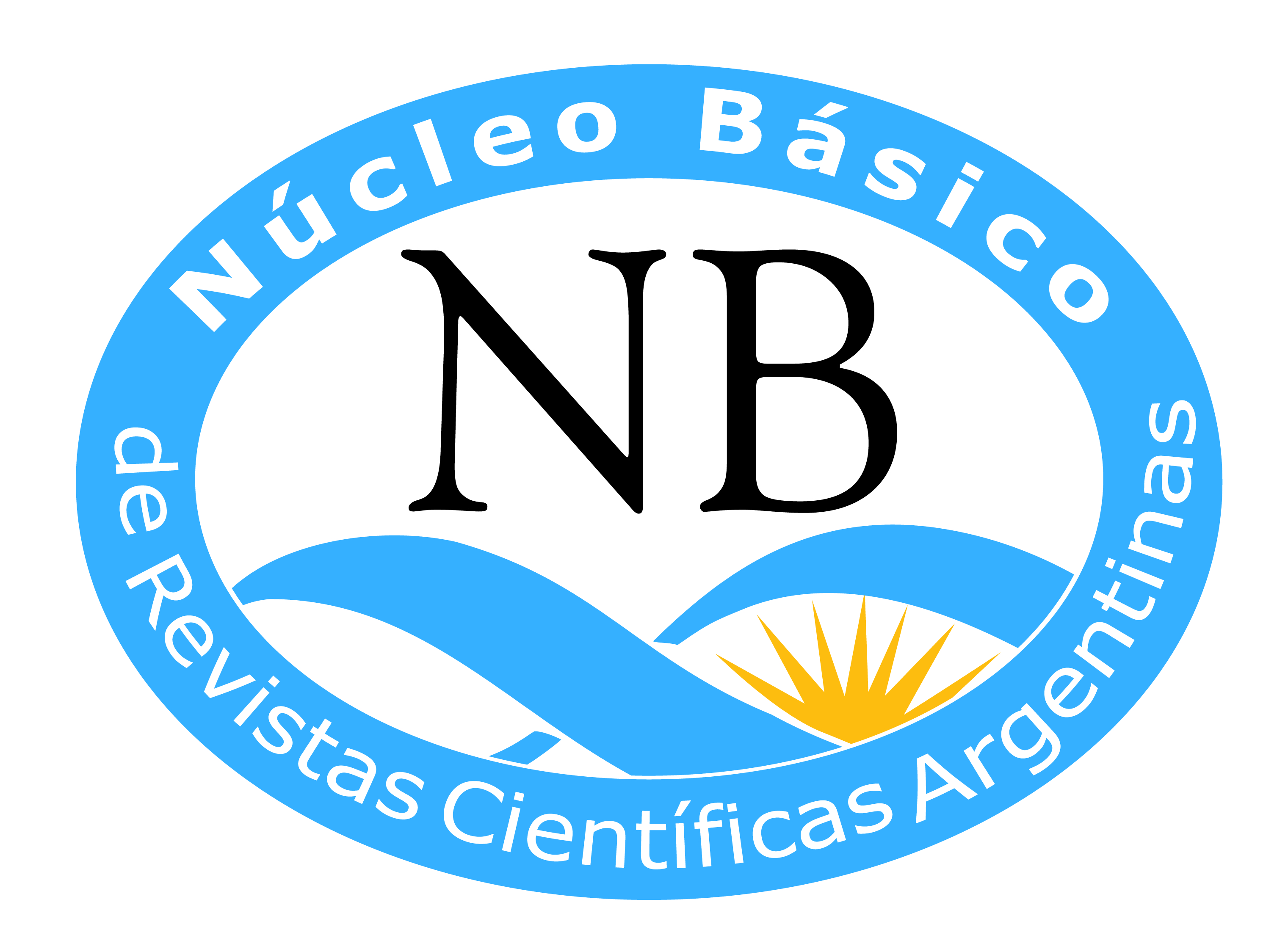1st Campaign for the eradication of racism in Higher Education in Latin America
DOI:
https://doi.org/10.61203/2347-0658.v10.n2.33891Keywords:
Eradication of racism. Higher Education. Latin AmericaAbstract
The persistence of racism in society and in higher education is a structural and historical fact that accompanies teaching, research and extension practices, as well as the functional and daily dynamics of institutions, affecting entry, graduation and permanence of thousands of students. This article aims to socialize the actions developed from the 1st Campaign for the Eradication of Racism in Higher Education in Latin America, coordinated by the UNESCO Chair of "Higher Education and Indigenous and Afro-descendant Peoples" in Latin America (UNTREF), developed in 2020, as well as reflecting on the process of building collaborative networks and learning communities experienced by the members of the working groups formed. The article presents reflections on the achievements of the different experiences and the pending challenges for each of the institutions involved. It should be noted that the campaign consisted of carrying out actions on the internet, this was thought long before the pandemic, the global context and isolation only reaffirmed the need to work in virtual environments. The campaign is presented as one of the different initiatives carried out in Latin America to make visible, problematize, promote and outline new agendas to continue working for an anti-racist and intercultural higher education, becoming a singular and collective space to nourish and be inspired in empirical analysis of the expressions and situations of racism ‒felt, thought and faced by different subjects who lead their confrontation‒ inside and outside the HEIs.
Downloads
References
Amaral, W. R. (2019). A presença indígena e afrodescendente interroga a educação superior e possibilita o enfrentamento ao racismo! Colección Apuntes, Nro. 4, Cátedra UNESCO Educación Superior y Pueblos Indígenas y Afrodescendientes en América Latina, UNTREF. Recuperado de: https://drive.google.com/file/d/1gadDP4PrO5BTtBoqDlKLQNoRhtAZirG8/view
CRES (2018) III Conferencia Regional de Educación Superior de América Latina y el Caribe. Declaración. Recuperado de: http://espacioenlaces.org/wpcontent/uploads/2018/07/declaracion_cres2018.pdf.
Freire, Paulo. (1996). Pedagogia da Autonomia. Saberes necessários à prática educativa. São Paulo: Paz e Terra.
Loango, A. O. (2019). Las múltiples formas del racismo. Colección Apuntes, Nro. 13, Cátedra UNESCO Educación Superior y Pueblos Indígenas y Afrodescendientes en América Latina, UNTREF. Recuperado de: https://drive.google.com/file/d/1i1Mjc3Iy-NQ8pYsmZw1S5iiO
LyZsJVEc/view
Mato, D. (2020). Racismo, derechos humanos, y educación superior en América Latina. Revista Diálogo Educativo 65(20), 630-652. Recuperado de: http://dx.doi.org/10.7213/1981-416X.20.065.DS06
Zamora Aray, M. S. y Fernández A.M. (2020) La institución educativa como herramienta de alienación y descontextualización. En D. Mato (Comp.) Educación superior y pueblos indígenas y afrodescendientes en América Latina: las múltiples formas del racismo, pp. 53-65. Recuperado de: https://drive.google.com/file/d/1pWYHkumqbgeihfUE9zBdcAm3O5AvgJKH/view
Downloads
Published
Issue
Section
License

This work is licensed under a Creative Commons Attribution-NonCommercial-ShareAlike 4.0 International License.
Authors who have publications with this journal accept the following terms:
a. Authors shall retain their copyright and guarantee the journal the right of first publication of their work, which shall simultaneously be subject to the Creative Commons License of Recognition which allows third parties to share the work as long as its author is indicated and its first publication is this journal.
b. Authors may adopt other non-exclusive licensing agreements for the distribution of the published version of the work (e.g., depositing it in an institutional telematic archive or publishing it in a monographic volume) provided that the initial publication in this journal is indicated.
c. Authors are allowed and encouraged to disseminate their work via the Internet (e.g. in institutional telematic archives or on their website) after publication of the article, which may lead to interesting exchanges and increased citations of the published work. (See The Effect of Open Access).



